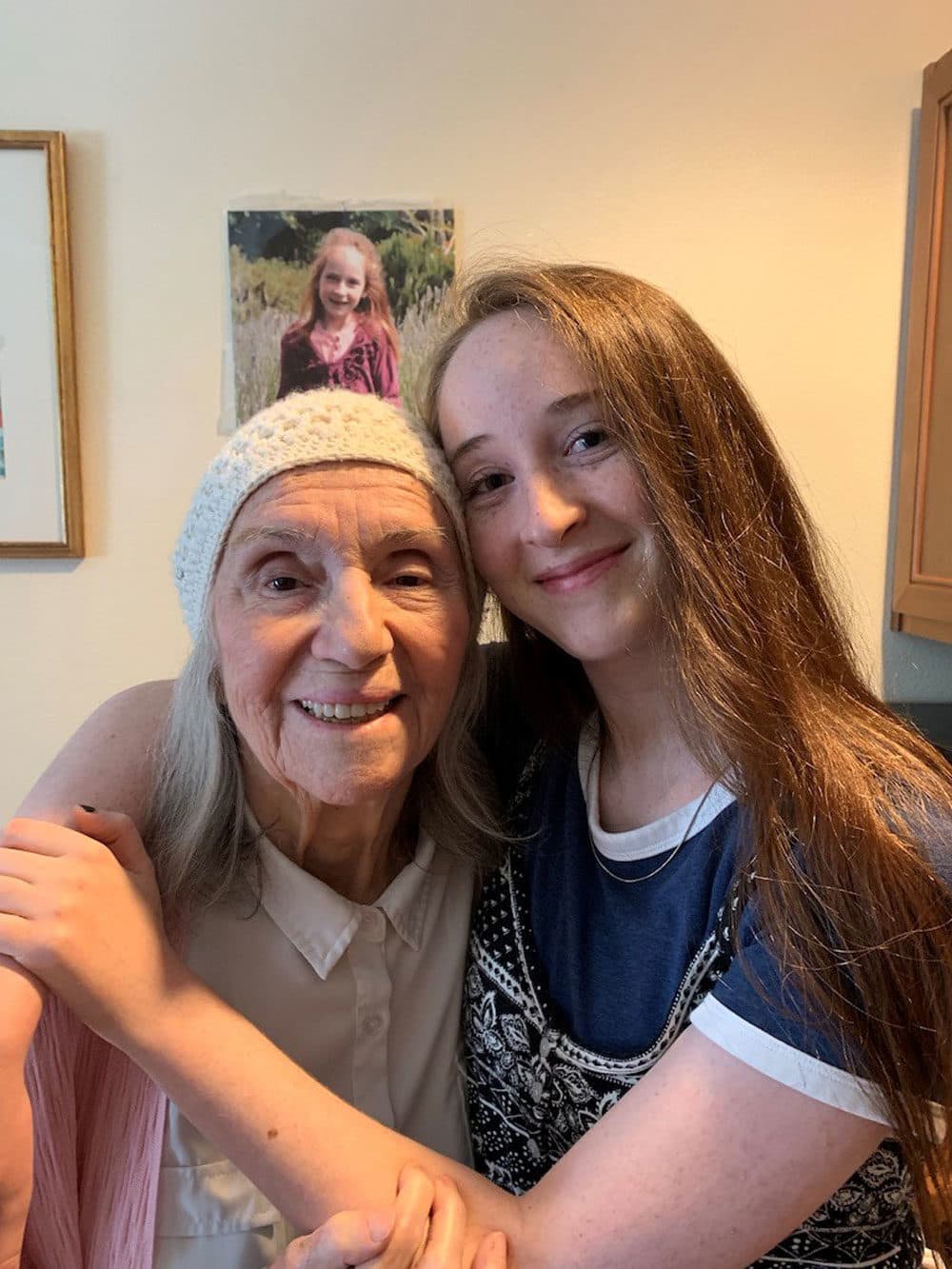Advertisement
Holocaust Survivor Shares The Rare Moments Of Kindness Amid Unimaginable Cruelty

When Soviet forces entered the Auschwitz concentration camp in Nazi-occupied Poland 75 years ago, they came upon a horrifying scene. There were thousands of people there waiting, emaciated and barely alive.
It’s estimated that of the 6 million Jews who died during World War II at the hands of Nazis, 1 million died in Auschwitz.
Edith Rubin, 91, first stepped foot in Auschwitz as a teenager but fortunately, she managed to escape death.
Edith doesn’t like to talk about her painful memories of the Holocaust. She agreed to share her story with Kind World because she wanted to share the moments of kindness she experienced during that dark time in her life.
Edith grew up in the small town of Nyirkaras, Hungary, with her parents and older sister. The town was so small, Edith said, her phone number was "2" — "1" was the town's post office. Edith lived a mostly comfortable life. Her father was a businessman who shipped produce and made enough money to buy the family a nice house. But outside of the home, in the 1930s, there was rampant and growing anti-Semitism.
"I had children that I played [with] and one day, they were told never to play with Jews," recalled Edith.
Edith's family moved to a bigger city so that they could live closer to more Jewish families and escape some of the rising tension. It didn't work. Edith remembers the day her family was forced to leave their home without any of their belongings. They and other Jewish families were taken to a nearby town square and forced onto trains. They didn’t know those trains were headed to Auschwitz.
Advertisement
"When we get to Auschwitz, they cut off our hair completely, and I felt so humiliated. I was a teenager, and I did not have a drop of hair," said Edith. "I still was not in reality to see that they wanted to kill us."
Edith was 15 when she was separated from her family. Because she was tall for her age, she was sent to work at another camp. She was forced to do things like shovel snow from one side and back to the other without shoes. She believes the Nazis made them do pointless, grueling work just to torture them.
Amid the relentless cruelty, Edith prefers to remember the rare moments of kindness that helped restore her faith in humanity. She remembers when she and the other prisoners were forced to march with their heavy shovels. One day, Edith was struggling to keep up, feeling weak because of a festering wound on her leg. That’s when another prisoner, a young woman, stepped up to help her.
"I don’t even remember her name, but maybe she felt sorry for me because it was hard for me to walk," recalled Edith. "She took from me the shovel, and said, 'I want to do it' ... and when I saw this kindness, then I imagined I had some hope."
Edith believes this woman may have saved her life. If she’d been caught struggling or if she had collapsed, the Nazis would’ve likely killed her.
Another act of kindness that Edith will never forget came from an unexpected source: an older German guard. Every day, he would would take his lunch and set it on the ground for the Jewish prisoners to take.
"He just put it down. Did not say nothing, did not look back," said Edith. "I will never forget him ... it meant that maybe the German people, a lot of them was good and Hitler turned them into what they became.”
After about a year working at the camp, Edith felt physically depleted and wasn’t sure she’d make it. That’s when her story took a turn.
In early 1945, a Swedish diplomat named Folke Bernadotte negotiated the release of thousands of prisoners from Nazi concentration camps. Edith was one of them. She and several other prisoners got on a train bound for Denmark. At the time, she didn't know what was happening or where she was going. She was barely conscious.
"People were screaming, 'We are free! We are free!' But I had no idea what it means — free ... like it’s familiar, but I have no idea what it is," said Edith.
The next thing she remembers is seeing the face of a young Danish rescuer. Edith, like many of the other prisoners, was covered in sores and lice. The guards at the camps wouldn't let them change their clothes or shower. Still, that rescuer held Edith in his arms and asked her what she needed.
"I could not believe it was possible. My heart was full of love," remembered Edith. "They gave us everything. They were so good to us. They washed ... scrubbed us, not washed us because we were so dirty ... It was so beautiful and so kind."
That night in Denmark was the first night in more than a year Edith had proper food, water, clean clothes and a mattress to sleep on. The next day, she and the other survivors headed to Sweden, where they were taken in as refugees.
Edith spent a year in Sweden before making her way back to Hungary to look for her family. She was eventually able to find her sister, but her parents didn’t survive.
After the war, Edith's life changed drastically. She eventually settled in the U.S. and married. She now lives in Los Angeles and has two daughters and three grandchildren.

When Edith looks back on her life and everything she's overcome, she feels an immense sense of gratitude for the people who gave her hope while she was at the camp - and to the Danish and Swedish rescuers who opened their hearts to refugees like her.
She’s still here, sharing her story, thanks to their extraordinary kindness.
